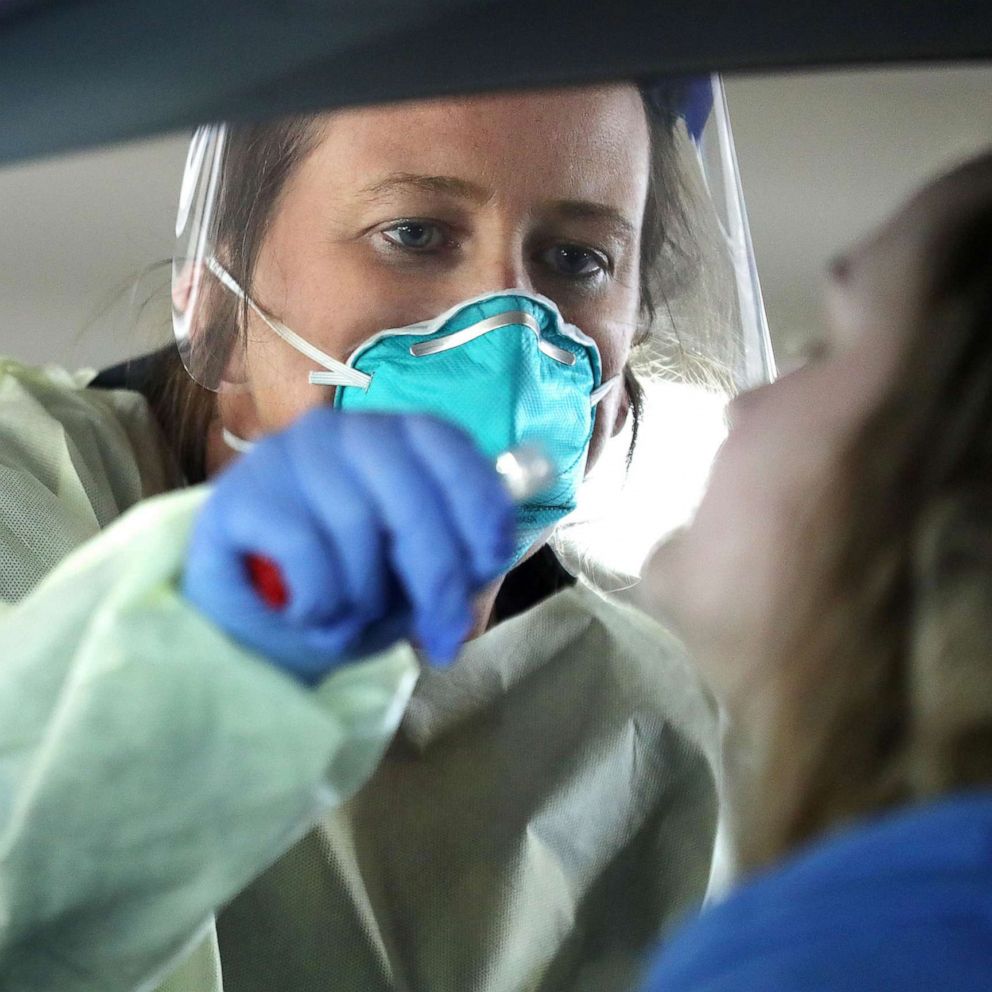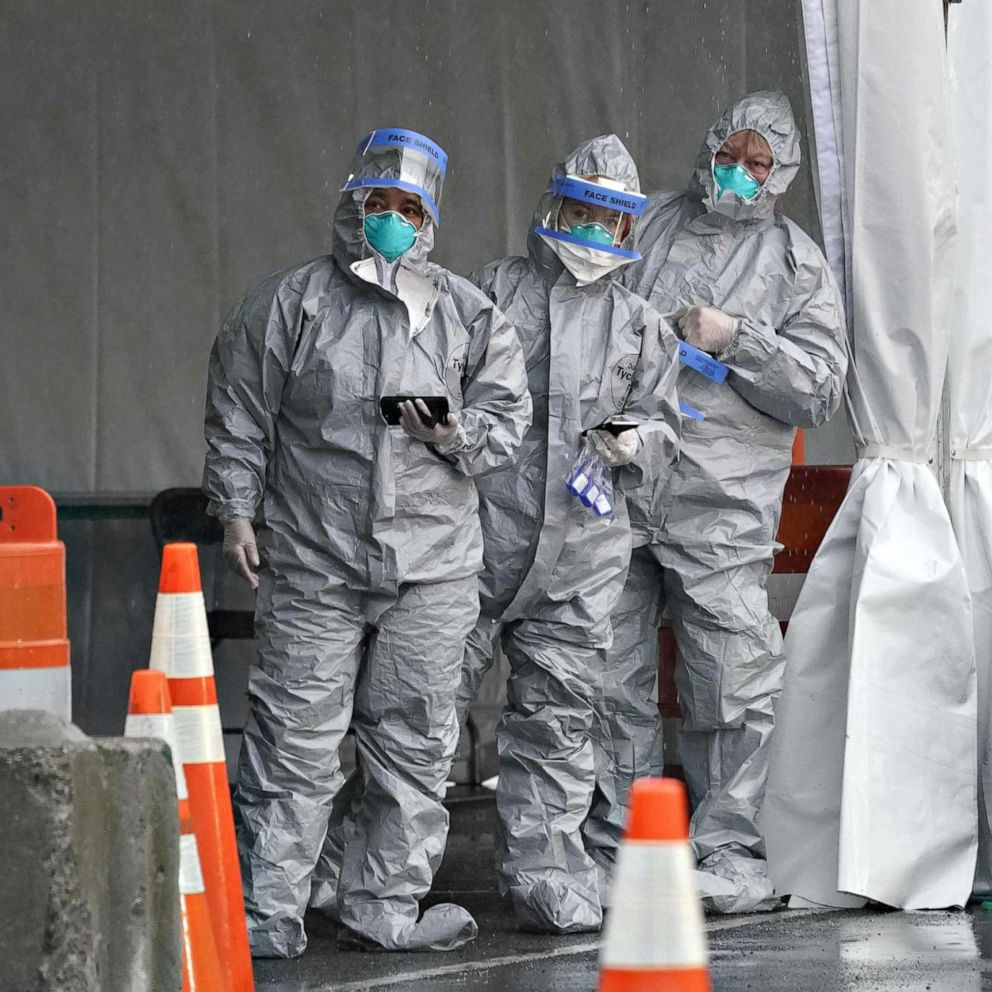'Race against the clock': Scientists testing if existing drugs can fight novel coronavirus right now
A handful of scientists across the globe are working around the clock to determine whether there is an existing drug that could temporarily fight the novel coronavirus.
One of those scientists says they could know in as little as a week if that's truly possible.
"It really has been a race against the clock," Nevan Krogan, who is the director of the Quantitative Biosciences Institute, told ABC News correspondent Eva Pilgrim on Wednesday.
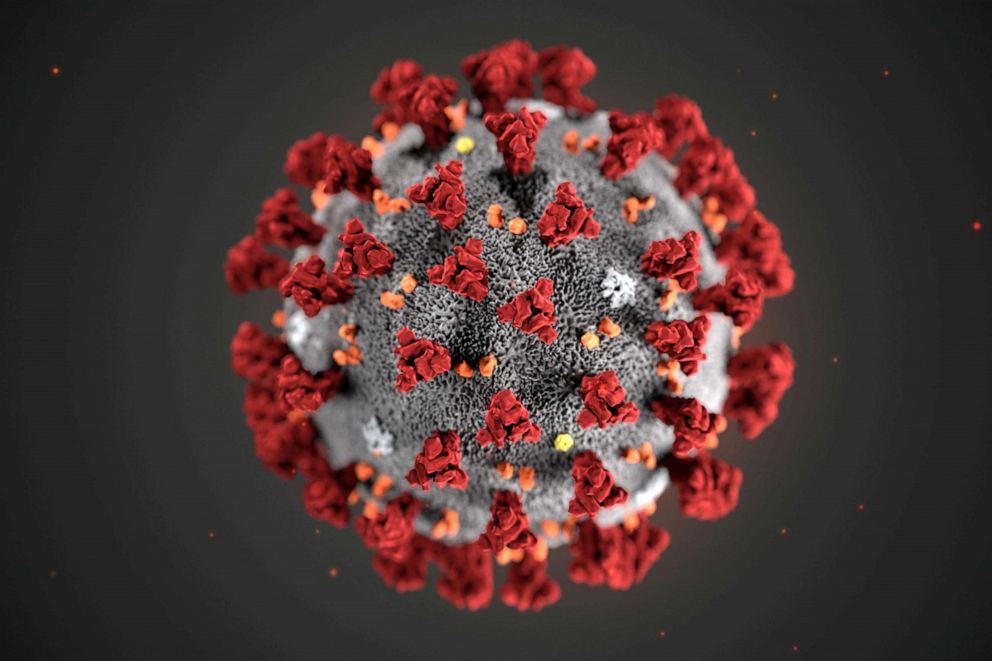
In searching for a solution, Krogan is focused not only on the virus, but its host -- humans. By doing so, he said he could identify the human cells the virus needs to survive and map out its genes, helping scientists narrow down what to focus on in terms of a solution.
"I think it takes an average of at least six years in order to come up with a drug, but if we can use drugs that exist for other diseases and repurpose them, we may have drugs that we could be using right now," Krogan said.
Kevan Shokat, who works at a nearby lab in San Francisco and is the chair of the Department of Cellular and Molecular at the University of California, San Francisco, was able to identify 60 drugs that interact with the same DNA as the virus.
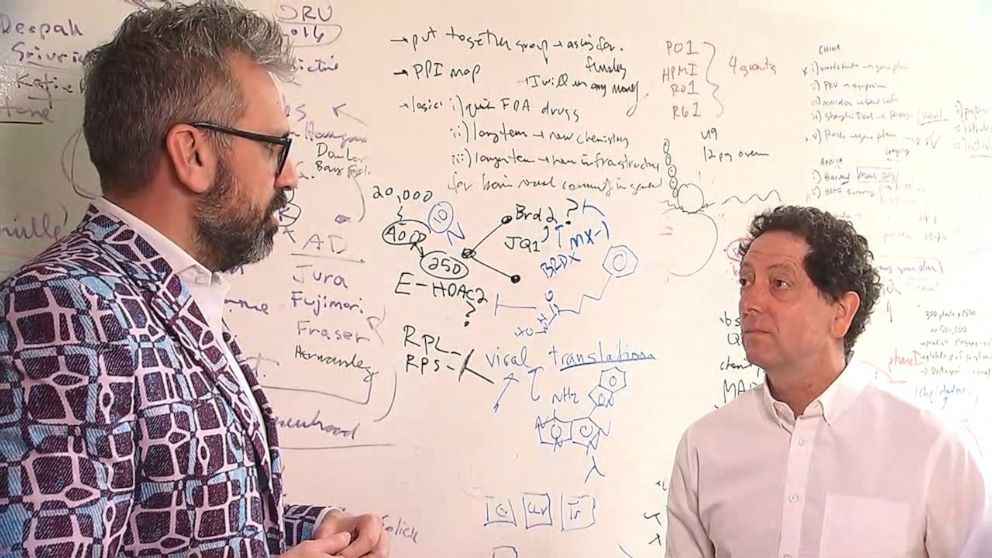
Ten of those drugs are already FDA approved.
"It’s the chance to have an impact on something that is a worldwide public health crisis," Shokat said
Krogan and Shokat are finalizing a detailed map of the coronavirus, and plan to share it with the entire scientific community as soon as possible.
What to know about coronavirus:
- How it started and how to protect yourself: Coronavirus explained
- What to do if you have symptoms: Coronavirus symptoms
- Tracking the spread in the US and Worldwide: Coronavirus map
For now, Krogan has sent his map to some of the few labs in the entire world that can test the live virus, including the Institut Pasteur in Paris. He also sent it to Adolfo Garcia-Sastre, who works at New York's Mount Sinai Hospital.
Garcia-Sastre is a virologist, and has helped create vaccines for years, including the flu mist.
Now Garcia-Sastre is focused solely on coronavirus and whether any existing drugs will help slow its spread.
He said results on that will return in a week.
His wife, Dr. Ana Fernandez-Sesma, also a virologist, is working long hours, hoping for a breakthrough.
"This is all hands on deck," she said. "We gain time basically by not trying to reinvent the wheel. We're really trying to kind of utilize what we already have and what we already know."
Marco Vignuzzi and a team of researchers are also working long hours at the Institut Pasteur.
Vignuzzi told ABC News, "We here have the expertise to grow the virus, quantify it and test drugs against it."
Coronavirus, officially known as COVID-19, has been detected in every continent except Antarctica and infected more than 214,000 worldwide. At least 8,732 people have died, with the majority being in China, where the virus was first detected in the city of Wuhan in December 2019.
"Hopefully the scientific community will be able to look at our map, look at your predictions and maybe make new predictions about which therapies or which drugs could be used to fight the virus in the short term," Krogan said.
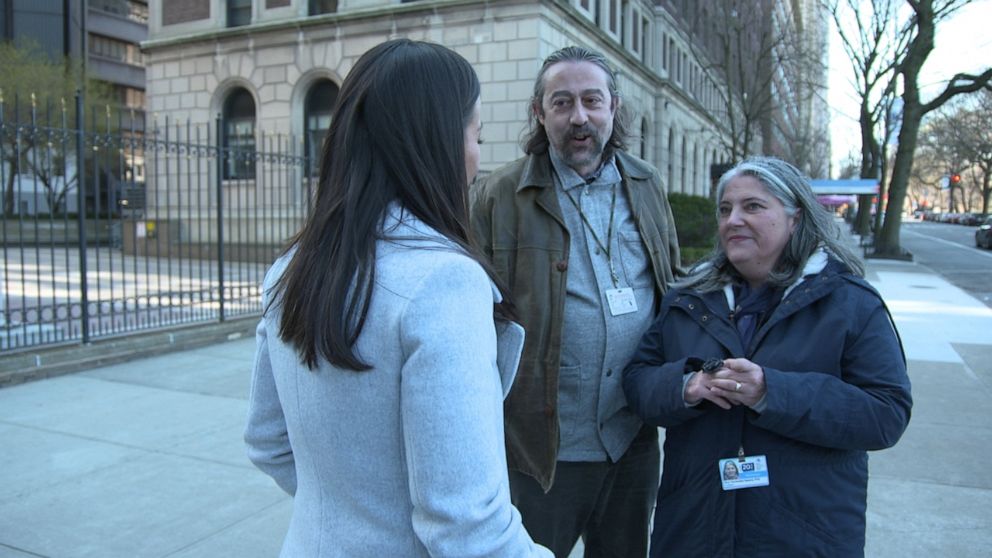
As political leaders and health experts grapple with the pandemic, these scientists hope that their map will decrease the rate of cases and the total number of cases, also known as flattening the curve.
Scientists hope this unprecedented scientific collaboration translates into real-world success in days or weeks, not years.
"I would say that there's a ... 2% chance that we could identify a drug that is FDA approved, and maybe it would be well enough understood that it can be used in patients in, you know, a month. That would be the fastest and that would be almost a miracle," Shokan said.

